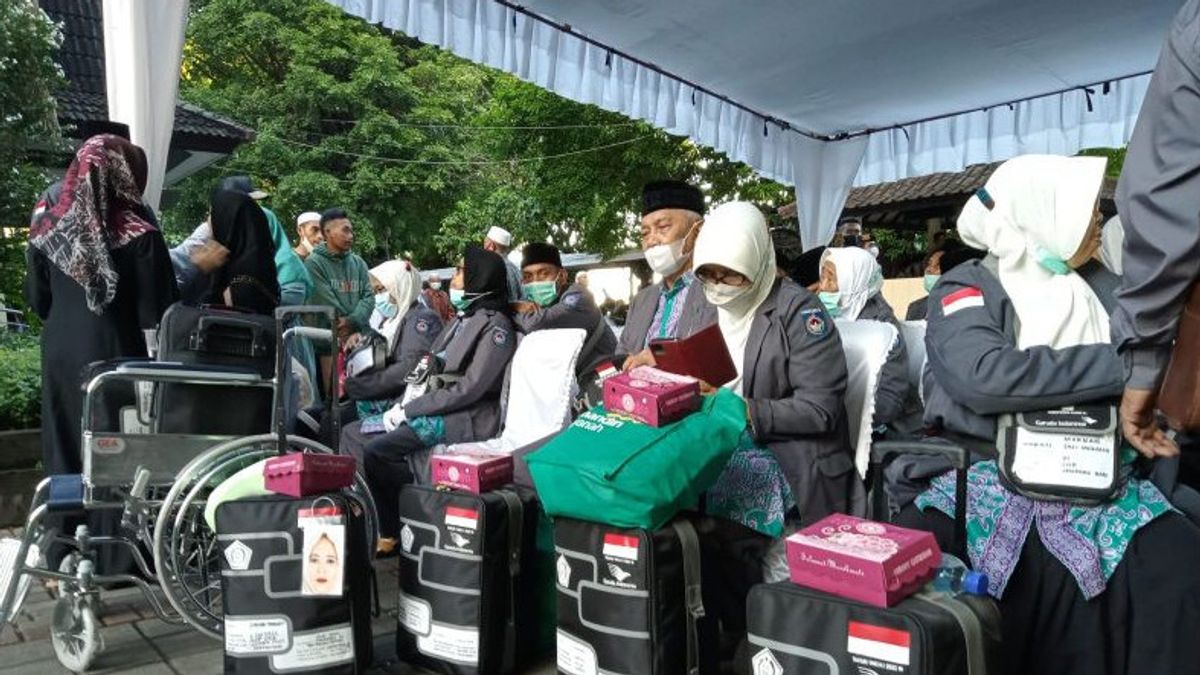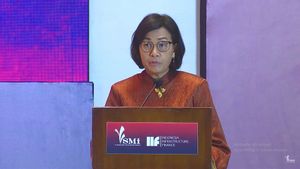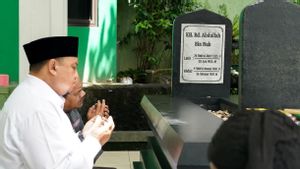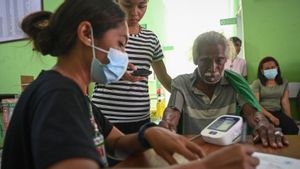MECCA - Hajj pilgrims will be provided with the Hajj Congregation Health Alert Card (K3JH) to monitor their health for 21 days after returning home.
"Obviously for 21 days if symptoms of illness occur, pilgrims must immediately report and seek treatment at the nearest health facility by bringing K3JH," said the Head of the Hajj Health Center, Budi Sylvana in Mecca as reported by ANTARA, Wednesday, July 13.
If there is a fever or other symptoms of illness, the sick participant should immediately go to the nearest health center or health facility by bringing K3JH.
Likewise, pilgrims who are declared healthy upon arrival in Indonesia will still be monitored for their health in their respective areas for 21 days by the respective health offices.
If during the monitoring there is a health problem, it is expected to immediately report it to the local health facility.
Monitoring is intended for the early detection of infectious diseases, including COVID-19, Mers-Cov, Meningitis, polio, and diseases that have the potential to cause a Public Health Emergency of International Concern (PHEIOC).
This is in accordance with the Circular of the Director General of Disease Prevention and Control No. HK.02.02/C/2782/2022 Regarding Inspection and Supervision of Hajj Pilgrims at Embarkation and Debarkation.
Budi said, if within 21 days the symptoms of the disease did not appear, then the congregation was still asked to submit K3JH to the nearest public health center.
He also reminded hajj pilgrims to continue to apply Clean and Healthy Behavior (PHBS), such as adequate rest, consuming nutritious food, and maintaining personal hygiene upon arrival in their hometown and during the health monitoring process.
VOIR éGALEMENT:
Upon arrival at the International Airport (debarkation), a health screening will be carried out in the form of checking the temperature through a thermal scanner and thermal gun, signs, and symptoms as well as observing the congregation in the debarkation hajj dormitory.
If the congregation is found with symptoms of fever or shows the potential for infectious diseases, further examination, and antigen testing are carried out. If the results of the reagent show reactive, further examination will be carried out.
In addition to health screening, the Ministry of Health has also prepared health posts at the airport for outpatient, emergency, and referral services.
In addition, ambulances and medical personnel are also prepared to anticipate infectious diseases. The Ministry of Health has also prepared a health surveillance system for Indonesian pilgrims arriving in the country together with the district/city health offices.
The English, Chinese, Japanese, Arabic, and French versions are automatically generated by the AI. So there may still be inaccuracies in translating, please always see Indonesian as our main language. (system supported by DigitalSiber.id)

















